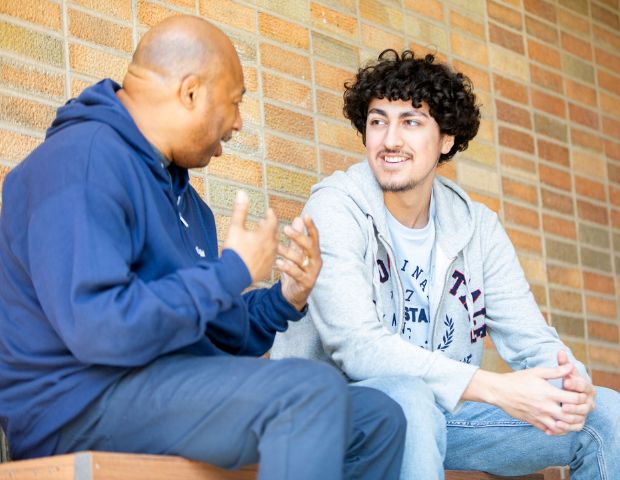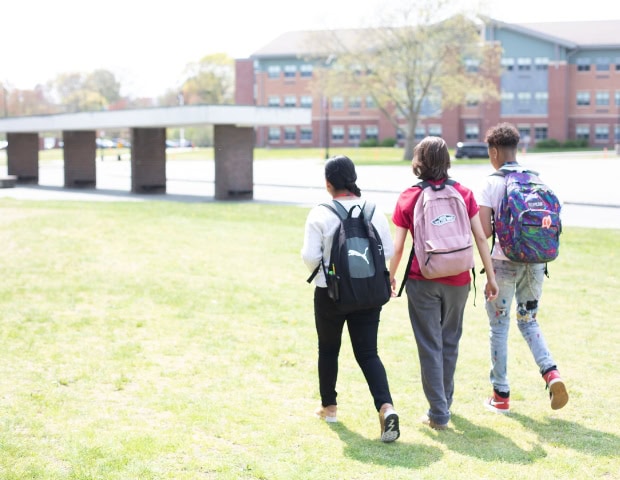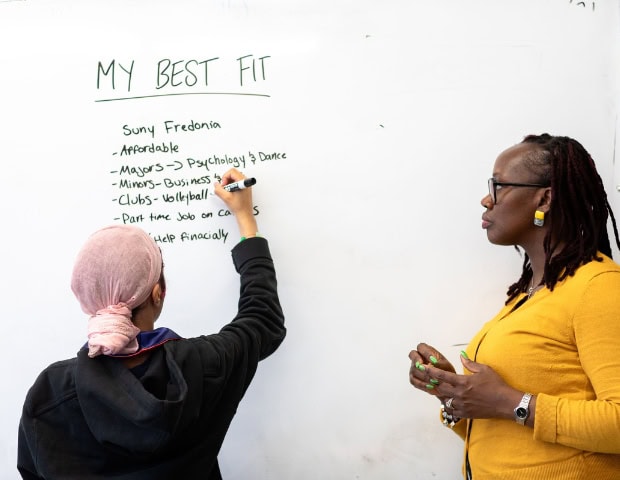We explain financial award letters and offer tips on how students and their families can make more informed decisions about college financing.
The Role of Mentorship in a Successful College Transition
By Monica Selagea
August 26, 2025
Mentorship is essential in helping students overcome the academic, social, and emotional challenges of transitioning to college—especially during the critical first year, when many students are at risk of dropping out. Educators play a key role by teaching students how to build networks and connecting them with support starting in high school. Programs like OneGoal, summer bridge programs, and first-gen offices provide valuable mentorship opportunities that can set students on a path to long-term success.
Key Takeaways
- Mentorship Matters: Supportive relationships help students navigate the academic, social and emotional challenges of college life.
- First Year is Critical: 1 in 4 students drop out after their first year, so early support can change the outcome.
- Teach Help Seeking Skills: Students need to learn how to ask for help, communicate with mentors, and build networks. And it starts with us, as role models.
- Start Early: Building networks in high school sets the foundation for confidence and connection in college.
- Programs Make a Difference: Programs like OneGoal, summer bridge programs, and first-gen offices offer valuable mentorship that can improve college success. And as educators, we can show students where to start.
Why Mentorship
Matters
As an educator with over 15 years of experience, I’ve learned that teaching goes beyond delivering lessons. Educators wear many hats; we guide students through academic content, help them navigate their high school journey, and prepare them for what comes next.
But at the core of it all, the most significant part of our work is the relationships we build with students. These connections create a bond and a trust, giving students someone they can count on. With this type of mentorship, students feel seen and supported as they prepare for life after high school.
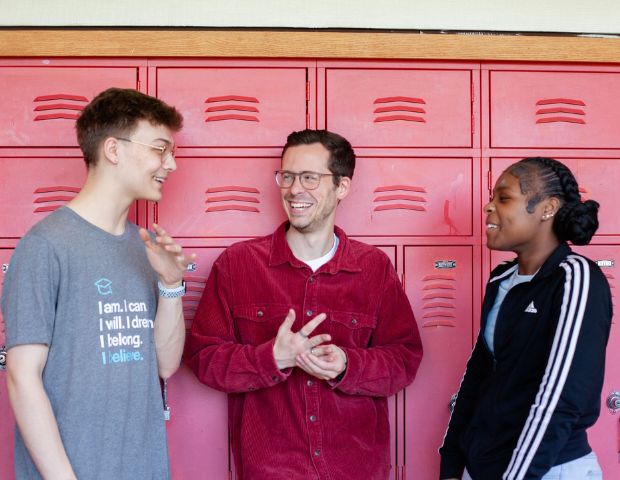
For many students, the transition to college can feel intimidating. From academic demands to unfamiliar environments, the change can leave students feeling overwhelmed. This is true for first-generation college students and those who come from under-resourced schools, who may not receive the same level of support or preparation as students from other schools. That’s where we come in! With the right guidance, mentorship offers the support students need to navigate the inevitable challenges that come with starting college.
In this blog, we’ll explore why mentorship matters and how educators can begin preparing students for college life before they set foot on campus, as well as how to find those relationships in their postsecondary paths. This will ensure that our students thrive and survive in their first year of college!
Why the First
Year Matters
According to research, almost 25% of first-year college students drop out. In other words, 1 in 4 students do not enroll for their sophomore year, and first-generation students are more likely to drop out. Many students face unexpected academic challenges, financial barriers and emotional stress. For first-gen students, the lack of guidance and limited knowledge about the college process can make the transition more difficult. So why is this happening?
Financial Pressure:
Rising tuition, cost of living, and limited financial aid are the number one reasons students drop out, especially among first-gen students and those from lower income communities.
Academic Reasons:
Many students arrive unprepared for college level work, often needing remedial courses.
Mental Health Challenges:
Stress, anxiety, depression, and feelings of isolation can affect students. Without the proper resources, many students, especially students of color, may not feel a sense of belonging on a campus.
Family Obligations:
Some students care for siblings, support their parents financially, or manage other home responsibilities that can conflict with academic demands.
Early support can change a student’s college experience. Mentorship offers consistent, personalized support that can help students stay grounded through the college transition. And with the right guidance, we can influence our students to advocate for themselves, seek help early, and stay motivated.
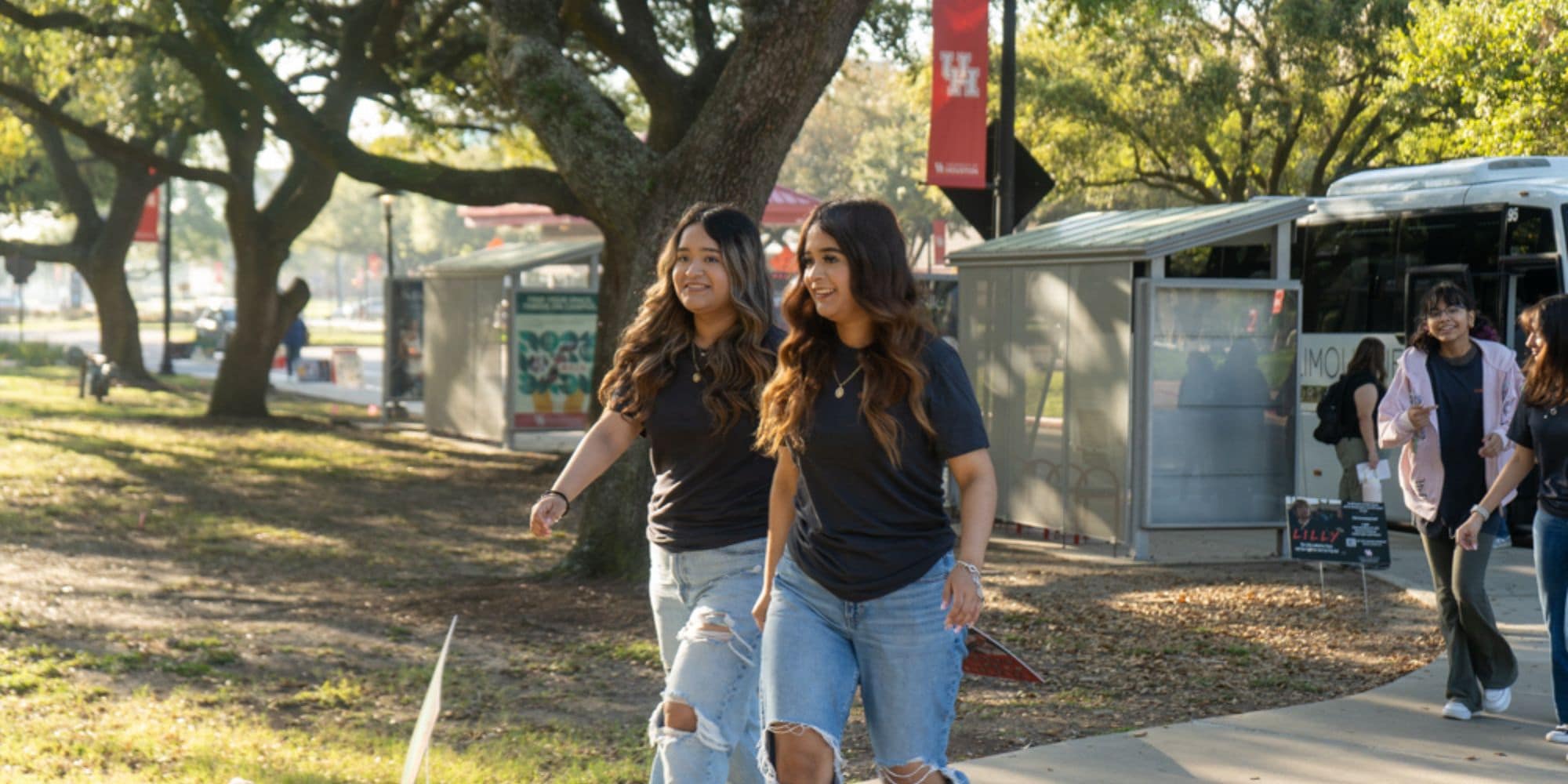
What Mentorship
Looks Like in College
Mentorship in college can take many forms, as long as it provides students with consistent support, guidance, and connection, especially during a student’s first year.
Peer Mentors:
These can be upperclassmen who guide their first-year student through the college transition and offer advice on managing classes, getting involved on campus, and finding a balance with social and academic activities. They give students a sense of belonging and community.
Professors/Academic Advisors:
They can provide guidance for academics or career advice. They typically help students build academic confidence and empower them to stay focused and on track for their long-term goals. Advisors often serve as references for jobs, internships, or even graduate school.
Program-Based Mentors – OneGoal:
The OneGoal program provides structured, long-term mentorship that begins in high school and continues into college. During Year 3 of the program, OneGoal students receive continued support that focuses on persistence, academic planning, and navigating the financial aid process. This mentorship is built on strong relationships formed during Years 1 and 2 of the program when the student is in high school, laying the foundation for trust and accountability. This support ensures a smoother transition into college, helping students stay focused, confident, and on track to successfully earn their degrees.
UChicago Inclusive Economy Lab conducted a rigorous and independent evaluation of our program’s impact on students’ postsecondary outcomes. The researchers compared OneGoal students in Chicago with students with similar academic profiles and socioeconomic backgrounds and found evidence that OneGoal students are 47% more likely to persist in their postsecondary path.
Identity-Based Mentorship:
This type of mentorship supports students from specific communities, such as first-gen, LGBTQ+, and BIPOC, and is often led by cultural centers or cultural groups and clubs.
Mentorship at OneGoal
“Teachers form deep connections and become champions for their students. Students form strong bonds and support one another. Each OneGoal teacher (Program Director) and class (cohort) is supported by OneGoal staff who provide ongoing coaching and training.”
Real Life
Ricardo Godinez’s postsecondary journey reflects his resilience and determination, as well as the powerful role of community support. Despite encountering financial hardships and navigating cultural transitions, Ricardo remained committed in his pursuit of education. Read his full story.
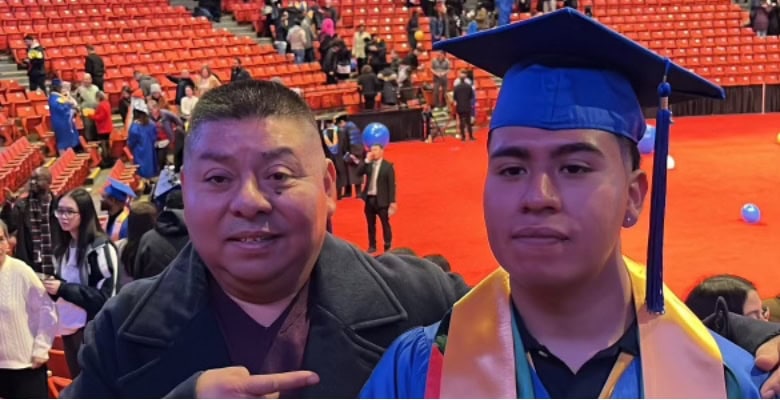
How Educators Can Prepare
Students to Seek Mentorship
Mentorship can make the difference in a student’s first year of college, but many students don’t know how to seek it out. As educators, we play an essential role in preparing students to build relationships, and we start by modeling it in high school so students are comfortable seeking it out in college.
Normalize Asking for Help:
Some students view asking for help as a sign of weakness, so educators should actively work to convey that it’s ok to ask for help! We can share personal stories, bring in guest speakers, and constantly remind students that successful people build networks, ask questions, and lean on each other for guidance. Seeking help is not a failure; it’s a strategy.
Encourage Students to Identify Mentors Early:
We can guide students to identify trusted adults who play a role in mentoring, like counselors, coaches, or other school staff. Even peers, like upperclassmen, can serve as mentors. These early relationships help students build confidence and find the trust they need so they feel safe and seen.
Teach Practical Skills:
Knowing how to engage with a mentor is just as important as recognizing the need for one. We can teach students the following:
- How to introduce themselves with clarity and confidence
- How to write professional emails for a potential employer, professor, or advisor
- How to set up a meeting or role play an interview. These micro skills build confidence for real college scenarios
Unconsciously, we do it every day with our students. It’s not only counselors who build trusted relationships; educators do it every day. We have plenty of time with our students to learn about their interests, so we can bond with them through our personal stories. By embedding mentorship readiness into the high school experience, educators can give students one of the most valuable tools they’ll need in college: the ability to seek out and build strong and supportive relationships that help them thrive.
Trust That Grows
Into Lasting Support
In OneGoal, building a foundation of trust begins with Juniors in Year 1 of the program. By Year 3 (first year of their postsecondary journey), that trust has matured into a strong, reliable relationship where students feel confident reaching to their OneGoal teacher for support.
As a current Year 3 teacher, I regularly receive texts and emails from students asking about everything from registration deadlines to choosing dorms and meal plans. These moments are more than logistical, they’re proof that students know they have someone in their corner. From emotional support to academic guidance, I take pride in being a dependable resource for each of the students. But that support doesn’t end with me. Being a OneGoal student means being part of a network of caring adults who are deeply invested in each student’s success.
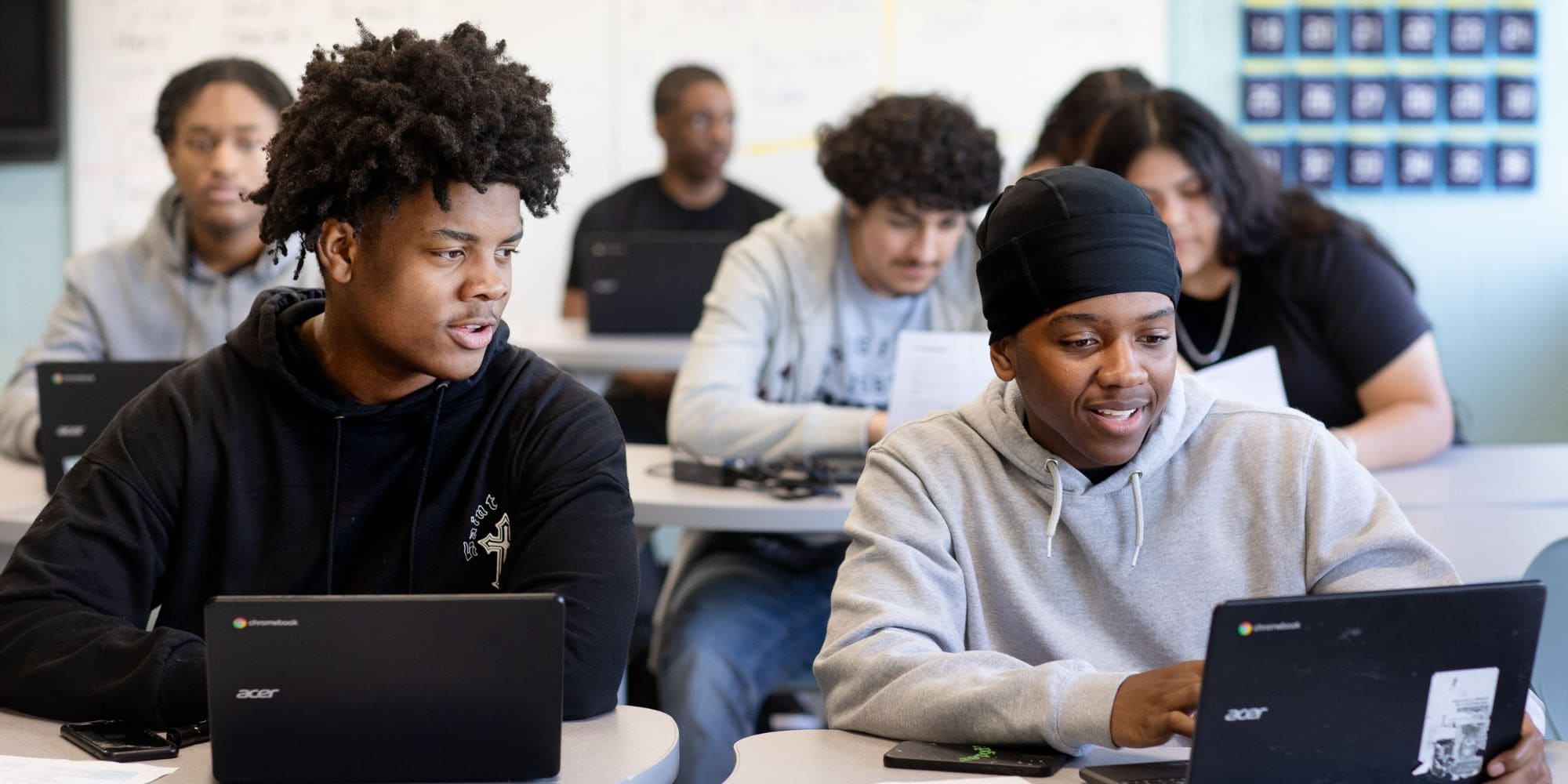
Programs and
Structures That Help
With the right programs and structures in place, students can feel supported. In addition to OneGoal, organizations like Bottom Line, One Million Degrees, and Introspect Youth Services offer long-term coaching, application help, and financial aid guidance throughout high school and college.
Many colleges offer programs that provide guidance, community, and practical tools that can help students in college. As educators, it’s important that we connect the students with these resources before they graduate so they are aware that they are not alone.
OneGoal’s College Access Program:
This program starts in high school and extends through the student’s first year in college. Students receive mentorship, information on academic and financial planning, and emotional support.
Summer Bridge Programs:
These are typically hosted by many colleges before freshman year begins, and students who attend can get a head start on academics, building friendships, and connecting with peer mentors and advisors.
First Generation Support Offices:
Many colleges now offer dedicated first-gen offices or centers that can provide targeted mentoring, workshops, and community building events to ease the transition.
Empowering
Students to Thrive
As educators, we have our work cut out for us. The transition from high school is one of the most critical periods in a student’s academic journey and mentoring them is key. We have not only the privilege to create trusted bonds with our students, but also the opportunity and responsibility to equip our students with the tools they need to thrive beyond high school graduation. By making mentoring a central part of their high school career, we can ensure that students don’t just enroll in college, but persist.
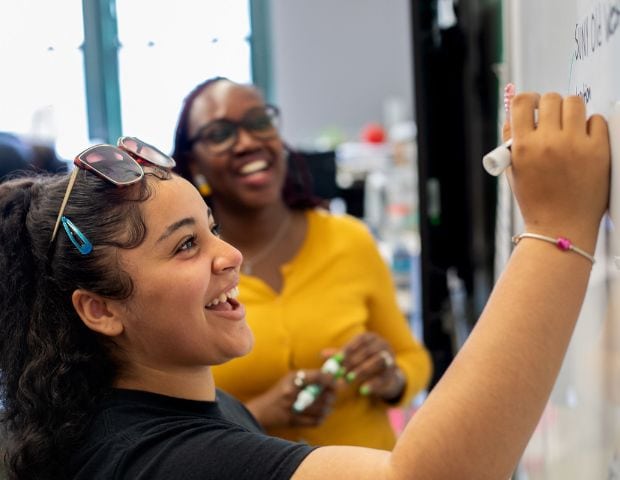
Q&A
Q: What if a student doesn’t feel comfortable seeking out a mentor?
A: Encourage them to start small—like visiting office hours or joining a student group. Help them draft a first email or write a script for a conversation. It’s not about having one perfect mentor, but about building a support network over time.
Q: Are peer mentors just as effective as faculty mentors?
A: Peer mentors play a different, but often more accessible, role. Students may open up more easily to someone their age, and peer mentors can help navigate the social and day-to-day aspects of college life.
Q: How can I find out what mentorship programs exist at the colleges my students are attending?
A: Check the student affairs or academic support section on the college’s website. Many schools list orientation, first-year experience, or TRIO/bridge programs that include mentoring.
Q: Can mentorship start before college?
A: Absolutely. Students who’ve had positive mentor relationships in high school, like many OneGoal students, are more likely to seek them out in college. Encourage students to reflect on what support has helped them in the past and how to look for similar relationships in new settings.
Monica Selagea grew up in Chicago and attended Columbia College in Chicago and DePaul University. She is currently a high school teacher in Chicago and a Program Director for OneGoal. She also teaches at the City Colleges of Chicago.

Related Stories
Explore strategies to help stopout students as they navigate returning to college. We examine the barriers to completion and hear students’ stories of persistence.
Explore factors for advising students on college choices and how our quality enrollment framework supports them in finding a postsecondary fit.
